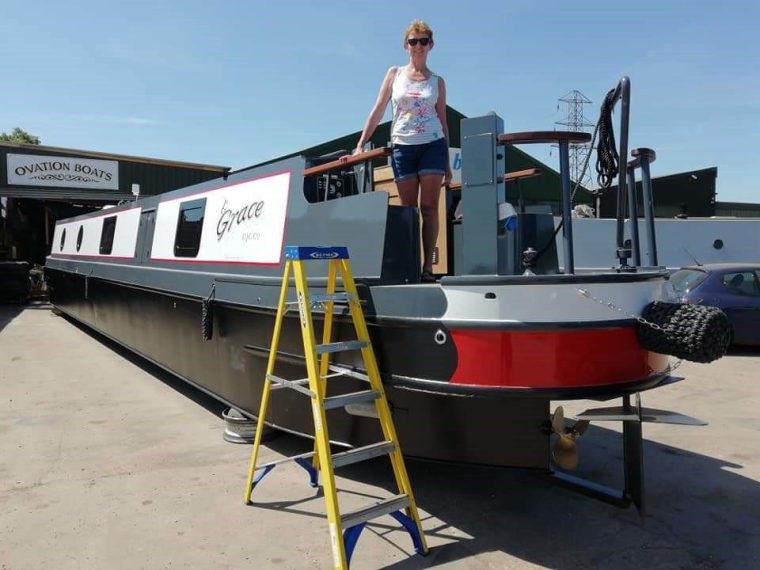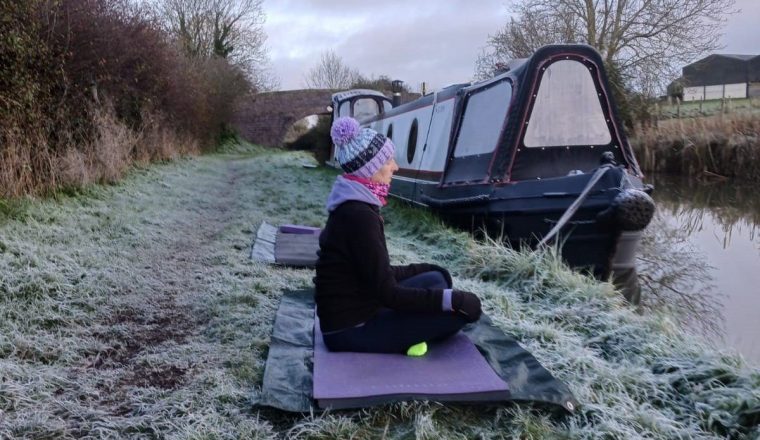At 63, I Sold My House for a Boat Life — Saving Thousands and Living the Dream
Six years back, my profession was as both a yoga and Pilates teacher running quite a thriving enterprise. Had anyone queried about my identity then, I would've characterized myself using terms such as "indestructible" and "self-sufficient"—an individual who offered guidance yet never felt the necessity for assistance from peers. Truthfully speaking, I was teetering on the edge of breakdown.
Initially, the signs were quite mild: persistent tummy troubles, bouts of lightheadedness, and an overwhelming sense of unease before teaching sessions. One morning, I lay awake in bed, my stomach twisting violently, contemplating how everything seemed to be crumbling around me. Not long ago, we had come back from vacation during which I was severely ill; so much so that I ended up at the emergency room and received a diagnosis of TIA, commonly known as a mini-stroke.
Throughout much of that year, I'd been experiencing poor health. The stress was immense, and I chose to overlook my feelings entirely. As someone approaching 61, retirement seemed close, yet I had zero plans to step away from my company. For me, teaching wasn't just a job; it was an enduring love that spanned more than two decades.

Over Christmas in 2018, I experienced a total collapse. Throughout my entire life, I was focused on making others happy, maintaining control over all aspects, and achieving flawlessness. Despite my intense desire to slow down, I found myself unable to cease my constant activity. Eventually, my physical health gave way as a means of forcing me to halt.
My mother passed away in February 2019, and her passing, along with my breakdown, triggered the most profound transformation we could conceive of.
The idea of residing on a small houseboat It was originally my husband Rob’s idea. During the lockdown, we were renovating our home and frequently discussed how we desired more out of retirement than just tinkering around or tending to the garden. We craved adventure and an escape from traffic and chaos. The notion of owning a boat appealed to us as it promised immersion in nature.
Initially, I was hesitant. We had only stayed aboard a boat for a few nights previously, so the notion seemed absurd—I figured we would remain in our Leicester house forever. However, once we toured a boatbuilder’s workshop and witnessed their craftsmanship, excitement bubbled up inside me, and I became certain about it. After that visit, we didn’t doubt anymore. We decided we'd prefer to have regrets over having done this adventure instead of regretting not trying at all. Remaining stationary felt akin to taking a gradual path towards an untimely end.
Read Next: My wife scrolls on her phone while I’m talking – it’s so rude
By September 2020, we had sold our home and trailer, and donated all of our possessions. live on a narrow boat At 63, I began an entirely new chapter of my life. This represented the biggest transformation one could undertake in their sixties—moving from a three-bedroom house where we had lived for 18 years to a tiny floating abode measuring just 60' long by 6'10" wide.
Putting up the house for sale was thrilling, and unexpectedly, discarding ninety percent of our belongings turned out to be fairly simple. Most items were passed along to friends, relatives, or thrift stores—though pandemic restrictions complicated this process somewhat. We offloaded both vehicles, as well as the trailer, couches, beds. Letting go of photographs and books proved to be the toughest challenge. For my trio of kids and two oldest grandkids, I compiled photo collections; despite having an entire chamber filled with literature, I realized there would not be enough room aboard for such accumulations. Our policy became keeping just those essentials used daily.
When my mom sold her home after more than five decades, it made me realize how insignificant our belongings truly are. The essence of life lies in experiencing things rather than hoarding them for hypothetical situations.
To say the least, we were completely unaware of the difficulties involved in transitioning to a home built without bricks and mortar. The administrative part proved especially exasperating—updating our address with banks, the DVLA, and the passport office while having no permanent residence resulted in numerous fruitless discussions. In the end, we discovered a mail-forwarding service and, through sheer perseverance, succeeded in registering all our important documents there.
But we loved our boat From the beginning, since we had created it ourselves, we felt deeply committed to it. Initially, both of us were rather anxious about handling the boat, but we quickly adapted. The exercise involved in operating the locks also helps keep us in shape.
We're considered continuous cruisers since we don't have a home marina and spend most of our time moving through the canal system throughout the year.

We’ve travelled extensively – the Llangollen Canal twice, the length of the Leeds–Liverpool Canal, the Macclesfield, Peak Forest and Caldon Canals and been into Birmingham twice.
The most delightful times are those mornings when we step out aboard the boat, which is anchored in an isolated spot, only hearing the birds sing around us. The UK has countless stunning locations that we wouldn’t have found had it not been for our vessel.
We've had the pleasure of meeting some amazing individuals too. One of the best parts of living on the water is that nobody seems to be competing with each other. Initially, when we shifted into our shiny new vessel, we were concerned that others might look down on us. However, every person we have encountered has been welcoming and at ease.
A narrow boat needs routine upkeep. Not long ago, just last week, we raised the boat from the water to inspect the paint job (known as blacking) on the hull, which was not inexpensive at £800 (and this has to be done biennially). Additionally, the yearly boat license costs £1400, and the insurance comes to £500 annually.
Overall, though, this lifestyle costs much less than living traditionally. Our funds mainly go towards purchasing groceries, wine, and fuel for vehicles. Now, we acquire fewer material possessions. Economically speaking, we feel quite safe—we could always part with our boat and van if selling them became necessary to purchase another home; however, ideally, that situation will not arise.
Occasional difficulties arise as the UK’s canal system shows signs of decline in certain areas because of reduced funding. This leads to necessary upkeep being overlooked, causing locks to remain non-functional and sections of the canal network to be shut down for extended durations.
Thankfully, we can always get a mooring somewhere, even if it means we have to travel further than we’d planned.
If we get fed up of travelling, we go into a marina for a couple of weeks and go on holiday! Last winter we went to Tenerife for a month so we weren’t on the boat for the whole winter, but the boat is only four years old and very well insulated. We have central heating and a wood burner, so it’s never cold.
We've been residing aboard. Grace For nearly four years now, we've been committed to maintaining our somewhat off-the-grid lifestyle as long as we're capable of doing so physically. Starting each day with sunlight and bird song out here in the countryside truly feels like a dream come true, offering us the freedom to explore, whether it’s immersing ourselves in nature, wandering through urban landscapes, seeking moments alone or enjoying social interactions.
Regarding my well-being, I'm in a far better position now. Physically fit, emotionally steadier, and more self-aware than ever before, I've never felt clearer. Having spent over six decades under the tyranny of my internal critic, I am finally experiencing tranquility.
Post a Comment for "At 63, I Sold My House for a Boat Life — Saving Thousands and Living the Dream"